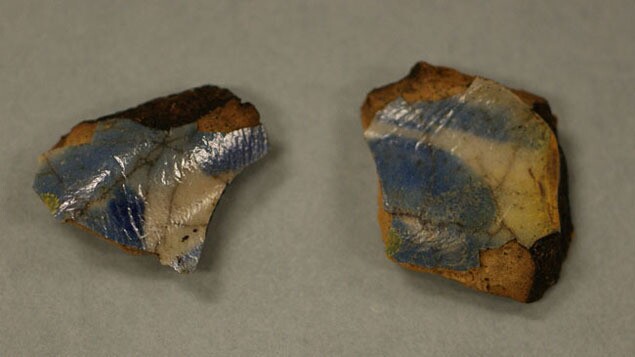With our free press under threat and federal funding for public media gone, your support matters more than ever. Help keep the LAist newsroom strong, become a monthly member or increase your support today.
Sir Walter Raleigh's Colony Vanished Over 400 Years Ago. Scientists Are Still Looking

It's one of the nation's great mysteries: The first permanent colony of English settlers in what would become the U.S.,founded in North Carolina in 1587 by Sir Walter Raleigh, disappeared three years later with virtually no trace.
Now, archaeologists hope a new search for the Lost Colony will unearth clues about what happened to 117 men, women and children who vanished and were never seen again.
The First Colony Foundation, a group of archaeologists, is partnering with the National Park Service for a series of digs beginning this week at the Fort Raleigh National Historic Site.
"This dig includes new ground that's never been tested archaeologically," Jami Lanier, a cultural resource manager and historian with the National Park Service, said in a statement. "So, it's very exciting to see what may be found."
Scientists will dig for clues about the Lost Colony's disappearance
Sir Walter Raleigh, a famed English explorer and among Queen Elizabeth I's favorite subjects, was tasked with establishing a colony on Roanoke Island as England was trying to expand its reach across the globe.
The expedition that would travel to the island on North Carolina's Outer Banks in 1587 ultimately formed the first permanent English settlement in North America. (The land was previously home to the Carolina Algonquian people.)

But three years later, when a resupply mission returned to Raleigh's colony, none of the previous inhabitants was there. The only clue to their disappearance was the word "CROATOAN" carved into a wall.
The dig occurring this week is focusing on a previous expedition to the area in 1585, when a group of military men and scientists scouted the land for Raleigh.
The search will occur on several sites, including a metallurgical and science workshopset up by Thomas Harriot and Joachim Gans just a few years before the permanent settlers arrived.
Archaeologists will reexcavate sites where previous searchesmay have missed or misinterpreted soil changes called "features" to better understand what was there, according to the foundation. Some artifacts have already been discovered there, but scientists have also used ground-penetrating radar to identify new areas of interest.
Last year, the team of archaeologists found shards of pottery they believe may have been owned by members of Raleigh's colony.
The public is invited to watch the digs in person.
Copyright 2021 NPR. To see more, visit https://www.npr.org. 9(MDA1OTI3MjQ5MDEyODUwMTE2MzM1YzNmZA004))
At LAist, we believe in journalism without censorship and the right of a free press to speak truth to those in power. Our hard-hitting watchdog reporting on local government, climate, and the ongoing housing and homelessness crisis is trustworthy, independent and freely accessible to everyone thanks to the support of readers like you.
But the game has changed: Congress voted to eliminate funding for public media across the country. Here at LAist that means a loss of $1.7 million in our budget every year. We want to assure you that despite growing threats to free press and free speech, LAist will remain a voice you know and trust. Speaking frankly, the amount of reader support we receive will help determine how strong of a newsroom we are going forward to cover the important news in our community.
We’re asking you to stand up for independent reporting that will not be silenced. With more individuals like you supporting this public service, we can continue to provide essential coverage for Southern Californians that you can’t find anywhere else. Become a monthly member today to help sustain this mission.
Thank you for your generous support and belief in the value of independent news.

-
What do stairs have to do with California’s housing crisis? More than you might think, says this Culver City councilmember.
-
Yes, it's controversial, but let me explain.
-
Doctors say administrator directives allow immigration agents to interfere in medical decisions and compromise medical care.
-
The Palisades Fire erupted on Jan. 7 and went on to kill 12 people and destroy more than 6,800 homes and buildings.
-
People moving to Los Angeles are regularly baffled by the region’s refrigerator-less apartments. They’ll soon be a thing of the past.
-
Experts say students shouldn't readily forgo federal aid. But a California-only program may be a good alternative in some cases.







